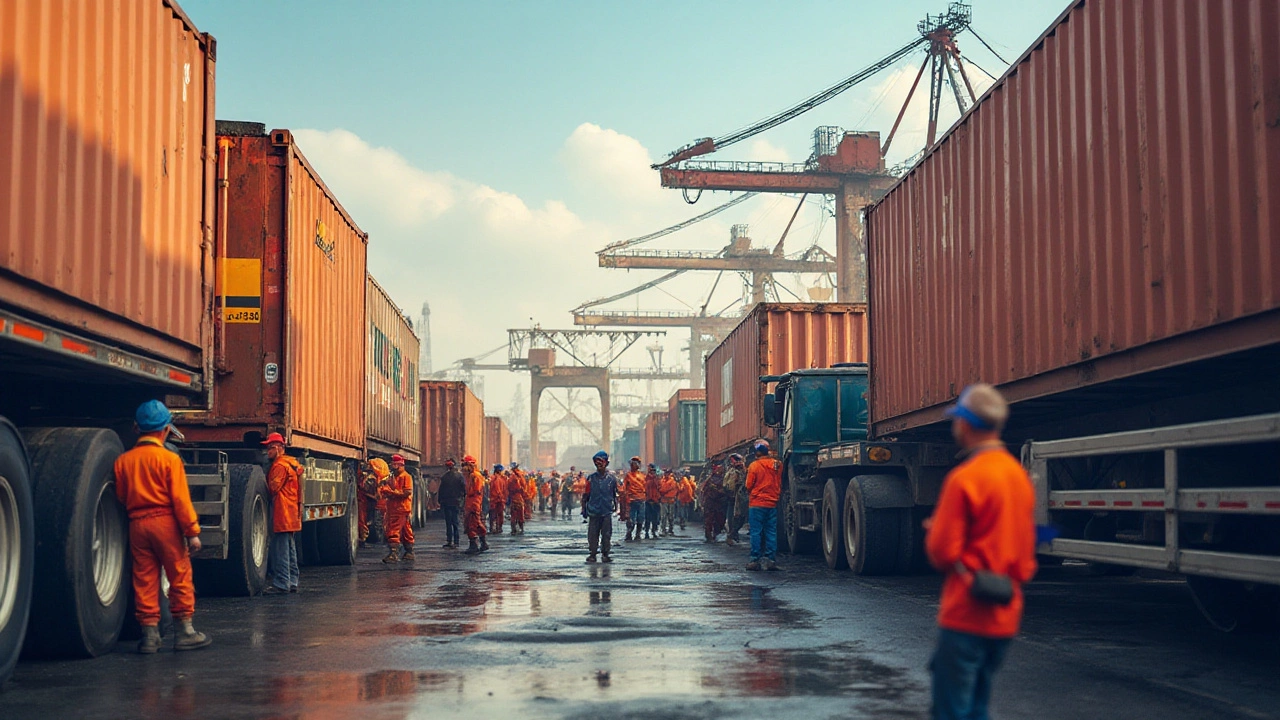Freight Forwarders – Your Shortcut to Faster, Safer Shipping
If you’ve ever wondered how a tiny package from Delhi ends up in a store in London, freight forwarders are the invisible hands behind the move. They take charge of paperwork, choose the best routes, and negotiate rates so you don’t have to juggle dozens of carriers yourself. In plain words, they turn a complex, global puzzle into a simple, reliable service.
Working with a freight forwarder means you get a single point of contact for everything from customs clearance to cargo insurance. That saves time, cuts errors, and often lowers costs because forwarders bundle shipments and leverage volume discounts. For small businesses, this can be the difference between growing fast and getting stuck in logistics delays.
Why Use a Freight Forwarder?
First, they know the rules. Import/export regulations change fast, and a misstep can lead to fines or shipments getting held at the border. Forwarders stay updated and handle the paperwork for you. Second, they have networks. Whether you need a sea container, an air freighter, or a road truck, they match your cargo with the right carrier. Third, they provide visibility. You get real‑time tracking and alerts, so you always know where your goods are.
Most importantly, a good freight forwarder works like an extension of your team. They ask about your delivery targets, volume spikes, and budget limits, then tailor a plan that fits. You don’t need to become a shipping expert – you just tell them what you need, and they make it happen.
Top Articles on Freight Forwarding and Logistics
Below are some of our most useful reads that dive deeper into topics closely related to freight forwarding. Each piece gives practical tips you can apply right away.
- What Is E‑commerce Delivery? Definition, Steps, Options, and Best Practices (2025 Guide) – Learn the whole e‑commerce delivery chain, from warehouse to doorstep.
- What Does WMS Mean? Warehouse Management System Explained (2025 Guide) – Understand how a WMS can streamline the storage side of your supply chain.
- Most Reliable International Shipping Companies: Trusted Names and Real Results – A quick look at carriers that freight forwarders often partner with.
- How Much Should I Get Paid Per Mile as a Delivery Driver? Rates, Tips, and Real Calculations – Insight into the cost side of road transport, useful when you negotiate rates.
- Courier Package Explained: Everything You Need to Know About Courier Deliveries – Clarifies packaging rules that affect freight forwarding.
- Warehouse Solution Explained: Key Features, Benefits, and How to Choose – Helps you pick a storage solution that works with your forwarder.
- Proven Ways to Save Money on International Shipping in 2025 – Tips that freight forwarders love to share with clients.
- What Does a Logistics Company Do? Services, Key Roles & How They Operate – A broader view of the logistics ecosystem.
- Essential Logistics Software: Tools That Power Modern Supply Chains – Software that many forwarders integrate with for smoother ops.
Take a few minutes to read any of these articles and you’ll see how freight forwarding fits into the bigger picture of supply chain efficiency. The more you know, the better you can work with your forwarder to cut delays, reduce costs, and keep customers happy.
Ready to level up your shipping game? Start by reaching out to a freight forwarder, share your delivery goals, and let them map out the smartest route for your goods. With the right partner, global trade feels a lot less daunting.
Unlocking Revenues: How Freight Forwarders Profit in the Logistics World
Freight forwarders play a crucial role in global trade, connecting various stakeholders within the logistics supply chain. They make money through multiple revenue streams like service fees, commissions, and value-added services. Their expertise in managing transportation, navigating customs, and optimizing cargo routes enables them to provide valuable services to clients. By being intermediaries, they negotiate better rates and ensure efficient movement of goods, which forms the basis of their earnings. Freight forwarders are indispensable, offering customized solutions to complex logistics challenges.
Read More